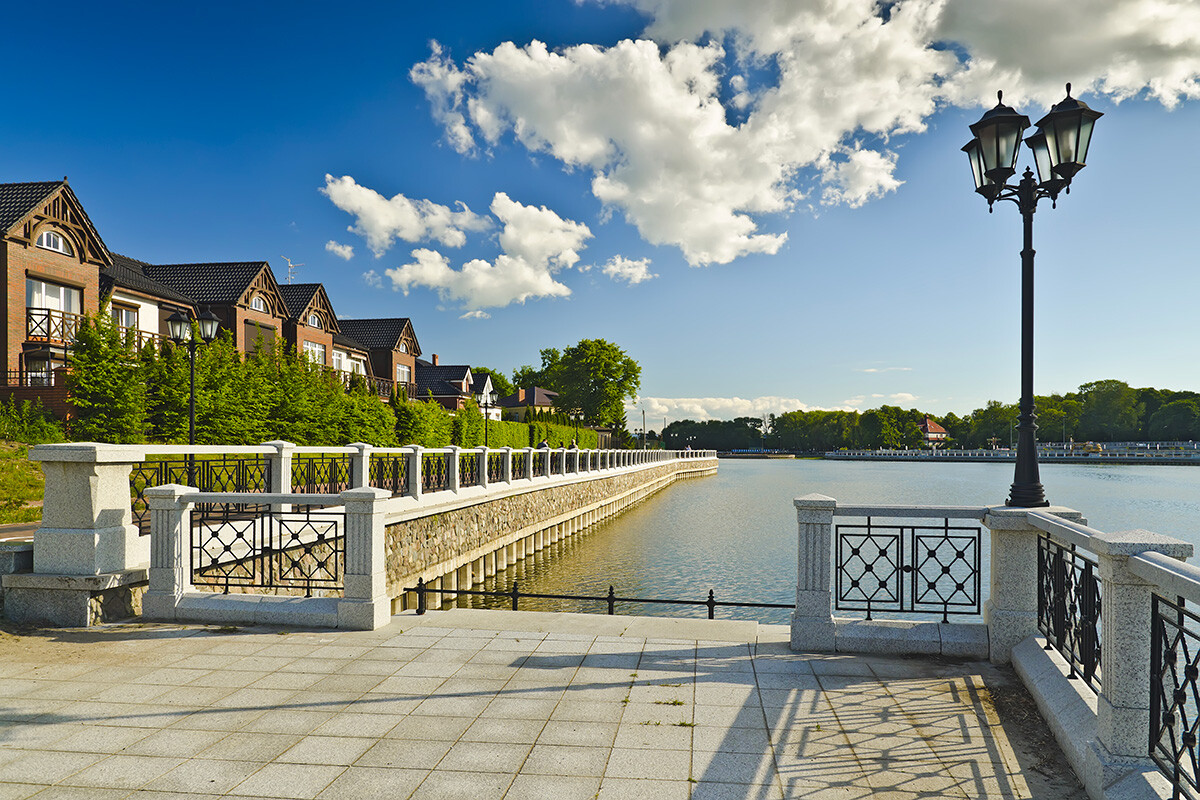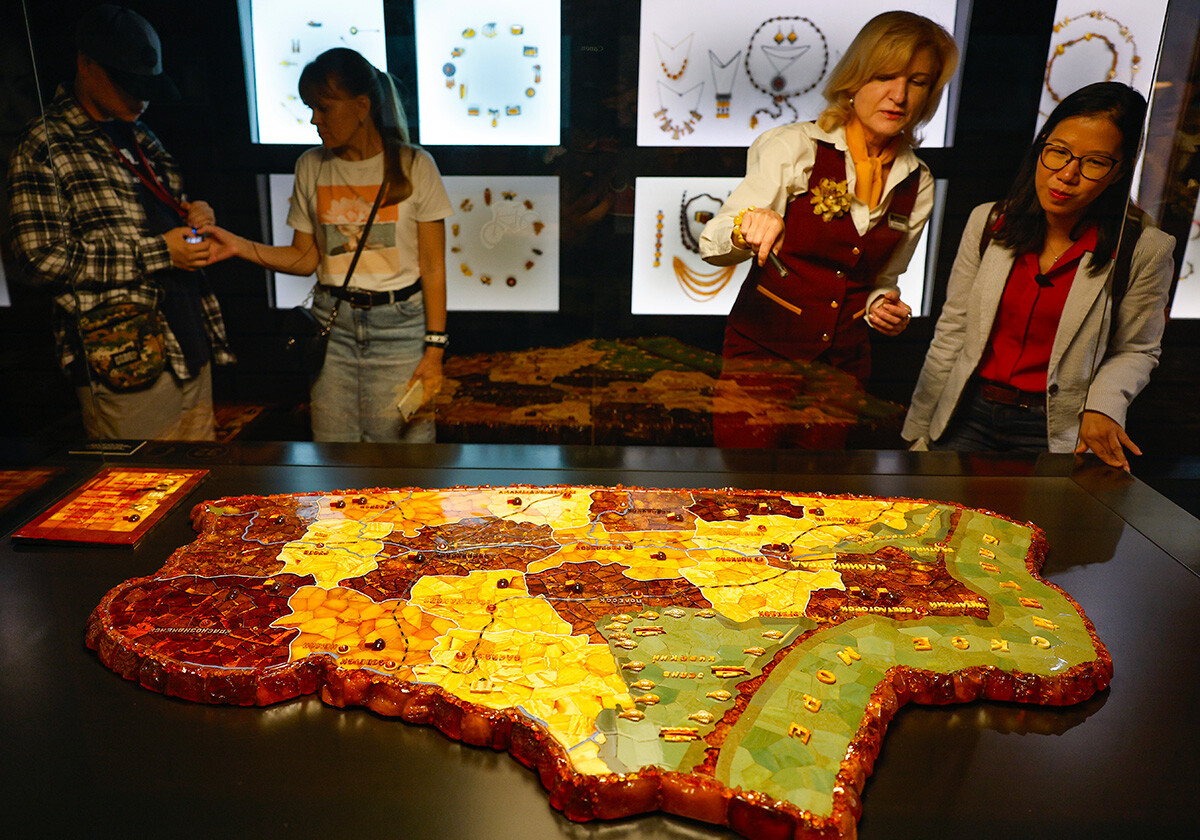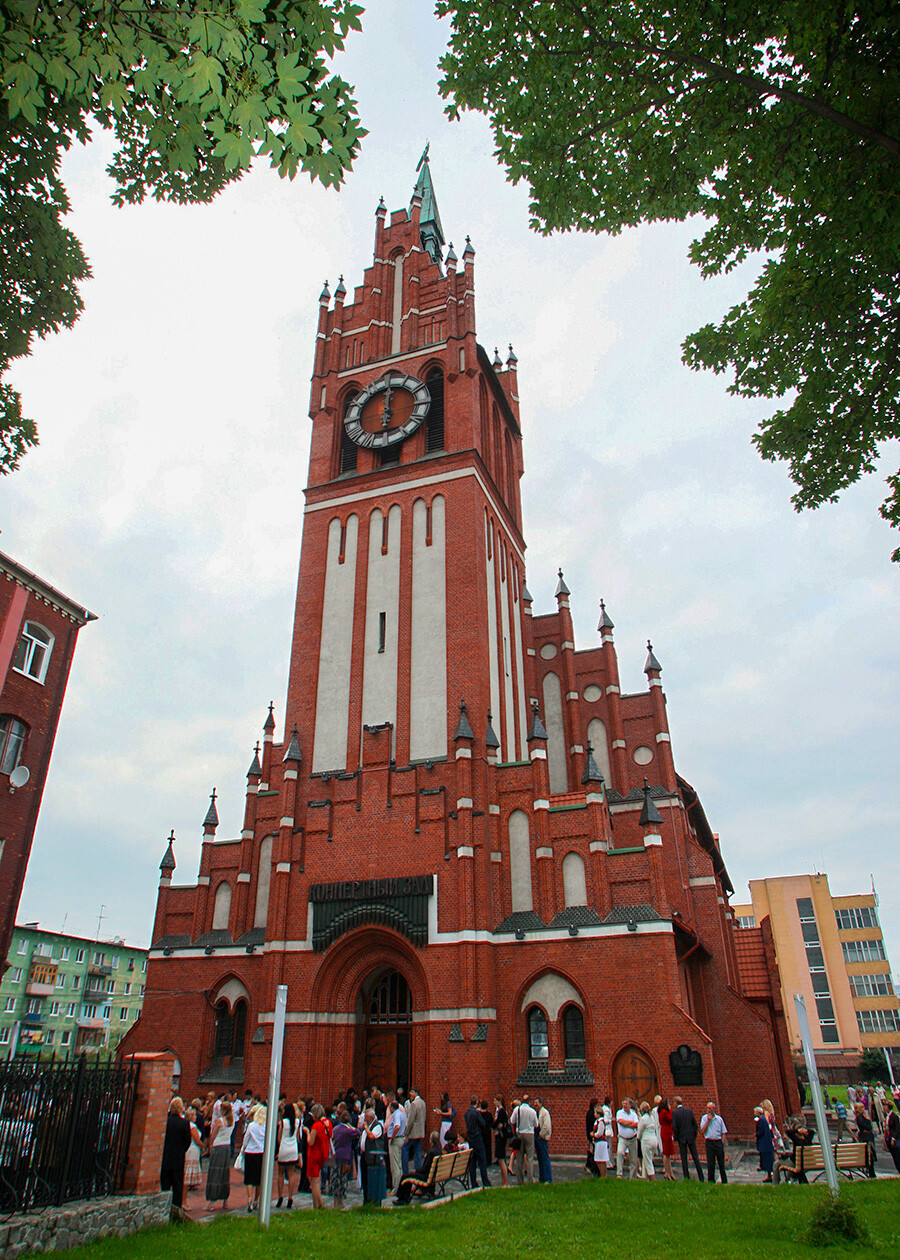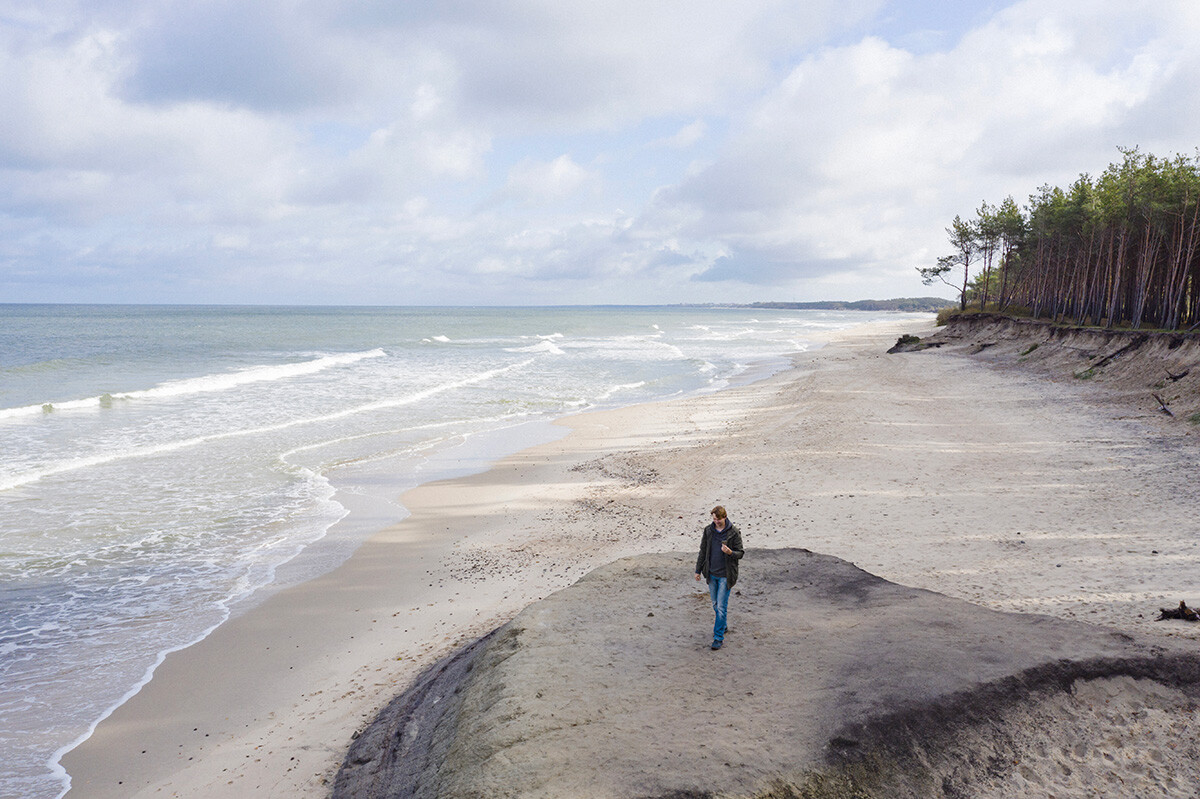
Kaliningrad is best viewed in the early morning. A morning walk along the city’s two main aquifers – the Verkhny and Nizhny (‘Higher’ and ‘Lower’) – will help with that. The two are connected. Grab a coffee in the cafe by the water, feel the cold breeze and follow the neat promenade.
The Verkhny Prud (‘pond’) area has an entire chillout infrastructure around it: skate parks, sports grounds, food trucks, restaurants, fountains, plenty of seated areas and benches, cycling paths and a spa center. Covering the pond’s perimeter alone at walking pace could take up to an hour.

Nizhny Prud is smaller and less crowded – an ideal spot for calm walks. There’s also a cafe, where you can sample local marzipan – something the city is well known for, alongside the cathedral and the House of the Soviets.

The Museum of Amber is located right on the shore of the Verkhny Prud and is open six days a week, except Monday. There’s always a new exhibition to see and Kaliningrad Region is actually the global leader in amber mining! You’ll also find amber with ancient mummified animal fossils inside, frozen in time.
Experience the pleasure of modern local cuisine by dropping by the ‘Sol’ gastrobar – one of the most popular restaurants in town. And if every item on the menu excites you, just grab a set for 6,000 rubles ($60). Trust us, it’s worth it!
Another place with local modern cuisine is ‘Seasons’. The restaurant's trademark dish is fish roe with black pikeperch sauce. In case you’re out with friends – give the ‘Brunch po-Russki’ a try, as it’s a whole pound of red caviar!
Don’t feel like Russian cuisine? Then head to ‘Satchmeli’ – one of the best Georgian restaurants in Kaliningrad. Piping hot khachapuri, tasty table wine and juicy khinkali really do make a proper lunch!
Your next stop could be the city philharmonic at Bogdana Khmelnitskogo 61a, inside the former German Church of the Holy Family, built in the neo gothic style.

The symphonic orchestra’s repertoire consists of timeless world-famous classics and international modern composers alike. The great thing about the show is that people also get to listen to lectures about the composers together with the performances.
After the concert, you can head to the House of the Whaler – a museum dedicated to portraying the day to day life of Soviet Kaliningrad. The establishment’s name harks back to the 1980s – a time when this region still allowed industrial whaling, with the profession itself deemed to be heroic.
One can really feel the atmosphere of the young Soviet city while enjoying an interesting audio-based stage production, based on the memories of local inhabitants. What’s more, the exhibits themselves are comprised of items donated by the local population.
A great way to end the day is to sample some traditional German cuisine in one of the most appropriate restaurants to do so – ‘Zotler Bier’. There, you’ll be able to try practically every food that Eastern Prussia (of which Kaliningrad was once a part) was ever famous for.
The main gastronomic delicacy in Kaliningrad Region is bonito stroganina – interestingly, a predominantly tropical fish. What’s more, the dish is only cooked this way in Kaliningrad and the reason for its popularity is still unclear, given that absolutely no bonito can be found in Baltic waters. Still, Kaliningradians adore the dish, so it can be found in every restaurant.
‘Zotler Bier’ is also famous for its craft beer, made according to German tradition. And the city, overall, is quite famous for its breweries.
You’ll find more exclusive beer and a hearty meal at ‘Khmel’, overlooking the city’s main square (don’t forget to try pike cutlets!). You can also dine at the medieval-style ‘Nesselbeck’. The latter is also a private hotel, with a spa and even a beer bath!
On the second day, why not try the coastal towns in Kaliningrad Region? The most popular destination in this category would be Zelenogradsk. You can take the train from Severny or Yuzhny stations, and be there in 30-40 minutes.
The town is home to the best public beaches in the summer, while, in winter, a fairy-tale atmosphere prevails – largely thanks to the preserved German architecture. Zelenogradsk is also famous across Russia as a city of cats: you’ll find tons of cat food vending machines and cute little special-built houses, where the felines often rest.
Meanwhile, the town’s main feline landmark is the ‘Murarium’ cat museum. It has more than 4,500 paintings of cats in the widest variety of artistic styles.

After the museum, why not take a walk along the embankment? In summer, you can head straight for the beach and take a dip under the warm Baltic sun; in winter, you can take in the marvelous seascape and enjoy some mulled wine on the promenade.
In case you feel slightly drained after the walk, it might be time to take a break. And the ideal place to do that is ‘Konigsbaker’, a popular cafe chain, or ‘Gnezdo’. At the former, you can not only try traditional and modern German desserts, but have a full lunch, as well. The place also makes its own bread, using unique recipes.
If you opt for ‘Gnezdo’ – don’t forget to try the smoked bonita (they cook it in front of you) or the seafood shawarma!
The remainder of your time in Zelenogradsk can be spent at one of the most unusual museums in the entire region. The Konigsberg Museum has an interactive exhibition about the history of Kaliningrad, lasting about an hour; at the end, you get an almost complete immersion into the past, as you get to “free Kaliningrad from the fascists, together with the soldiers”.
You can end your stay with dinner at one of the most popular restaurants in town – ‘Oblaka’, right by the sea. Grab a panoramic seat by the windows and enjoy the sunset!
The restaurant offers a myriad seafood dishes, as well as a large dessert menu.
Among the other popular spots are the ‘Dacha’ cafe and the ‘Telegraf’ restaurant. The former is a cozy family cafe by the sea, offering home cooking. The latter is an absolutely unique restaurant, as it's located at the city’s main post office – an early 20th century architectural monument. The restaurant specialized in Baltic cuisine: we recommend trying the Baltuk ukha (fish soup) and hot-smoked bream salad!
If using any of Russia Beyond's content, partly or in full, always provide an active hyperlink to the original material.
Subscribe
to our newsletter!
Get the week's best stories straight to your inbox